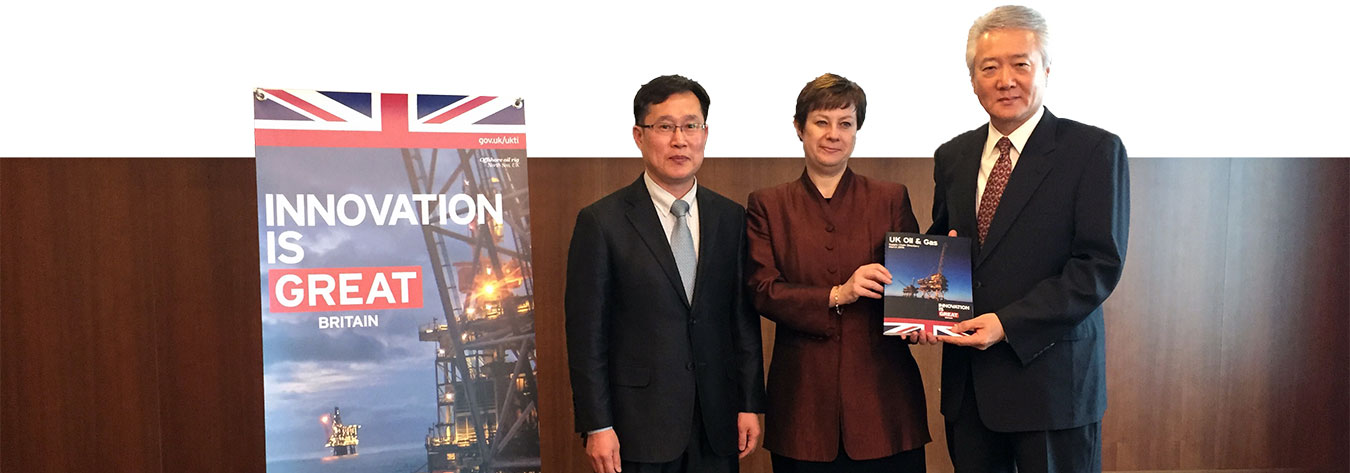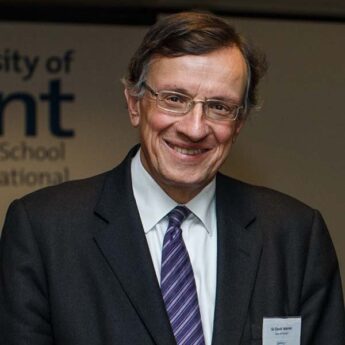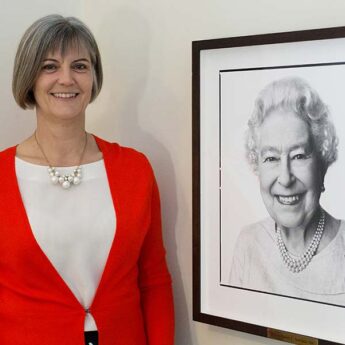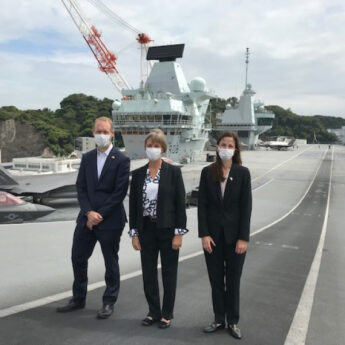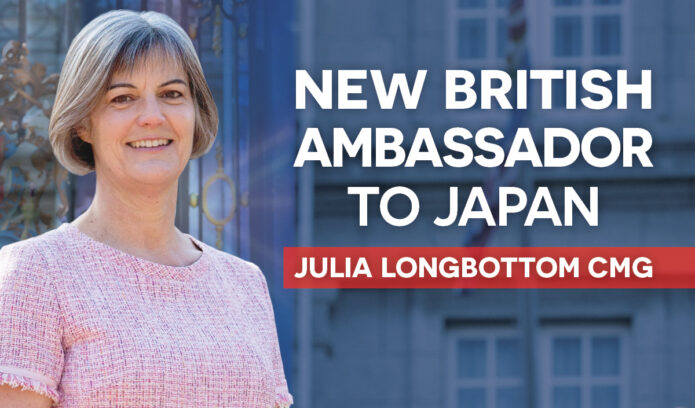She may have exchanged Japan for South Korea, but Sue Kinoshita OBE continues to work closely with the British Embassy Tokyo. Particularly when it comes to her former area of expertise: trade and investment.
In August 2015, Kinoshita—deputy head of mission at the British Embassy Seoul and Person of the Year at the British Chamber of Commerce in Japan’s 2014 British Business Awards—took up her post in Seoul. There she also acts as minister-counsellor and director of UK Trade & Investment. And while there are plenty of similarities between her new and her previous duties, some of the differences are stark.
“The day after I arrived, two South Korean soldiers trod on landmines while on patrol in the Demilitarised Zone. And, while all the local staff saw that and the subsequent tensions as quite usual, it felt quite uncomfortable to me and some of the newer members of staff here”, Kinoshita told BCCJ ACUMEN in an interview at the embassy in Seoul.
“In some ways, it is the same as getting acclimatised to the earthquakes in Japan; you do get used to them”, she said. “Although people have admitted to me that, this time, the situation with the North feels different; it feels more tense than ever before”.
At the time of the interview, troops of a number of nations—including Britain—were taking part in annual joint exercises with the South Korean military. As well as 300,000 South Korean troops, some 17,000 US personnel and members of the Royal Tank Regiment were involved in the largest ever military manoeuvres on the peninsula. North Korea carried out a fourth underground nuclear test in January—since followed by a fifth test in September—and subsequently launched several rockets.
Part of the British Embassy Seoul’s job is to report back to London about the security situation on the peninsula, as frequently as every few hours when the cross-border situation is particularly tense, Kinoshita said.
Similar priorities
The other priority of the embassy—which has a staff of 75, of whom 15 provide support from the UK, compared with 125 personnel covering Tokyo and Osaka—is promoting trade and investment, and the proximity of the two capitals makes it common sense for them to work closely together. In fact, a medical trade mission from businesses in northern England was in Seoul at the time of our interview, having spent the first half of the week in Japan.
“I think the hurdles to doing business in South Korea are similar in nature to those in Japan but, perhaps, more intense here”, Kinoshita said.
“There are different traditions in business, in the ways that things are done here and some non-tariff barriers”, she said. “I don’t think they are perhaps intentionally protectionist, it’s just different.
“I also think that Korea has more to do on the harmonisation of standards with international standards, and to nurture small and medium-sized enterprises and startups, although the government is aware of that and has announced plans for deregulation and structural reforms.
“Other than that, I think that doing business in Korea is slightly less predicable than in Japan”, she added, explaining that, “The ‘discretionary enforcement of regulations’ was one of the top challenges identified in a survey of European countries in [South] Korea last year”.
One significant advantage that South Korea has over Japan is the Free Trade Agreement (FTA) that was signed with the EU in 2011, with 97% of imports from Europe now tariff-free.
“The agreement has given European companies real price competitiveness in this market and contributed to strong exports from the UK as well”, she said.
Auto sector imports from the EU have climbed 62% since the FTA was signed, information and communications technology imports are up 71%, and arrivals of tea, coffee and spices from European nations have soared a remarkable 250%.
And Kinoshita believes that any UK firm doing business in either Japan or South Korea would be able to leverage their experience to gain a foothold in the other market.
“Firms need a similar approach to [both] markets and, if they are successful in one, then they will be able to work in the other”, she said. “There are a lot of shared attitudes, from respect for one’s elders, and the same importance placed on personal relationships and building trust”.
South Koreans, meanwhile, tend to be straighter talkers, which means there is less need to read between the lines. Moreover, they are also faster to make a decision and to put it into action—a bonus to everyone in the fast-moving business world.
